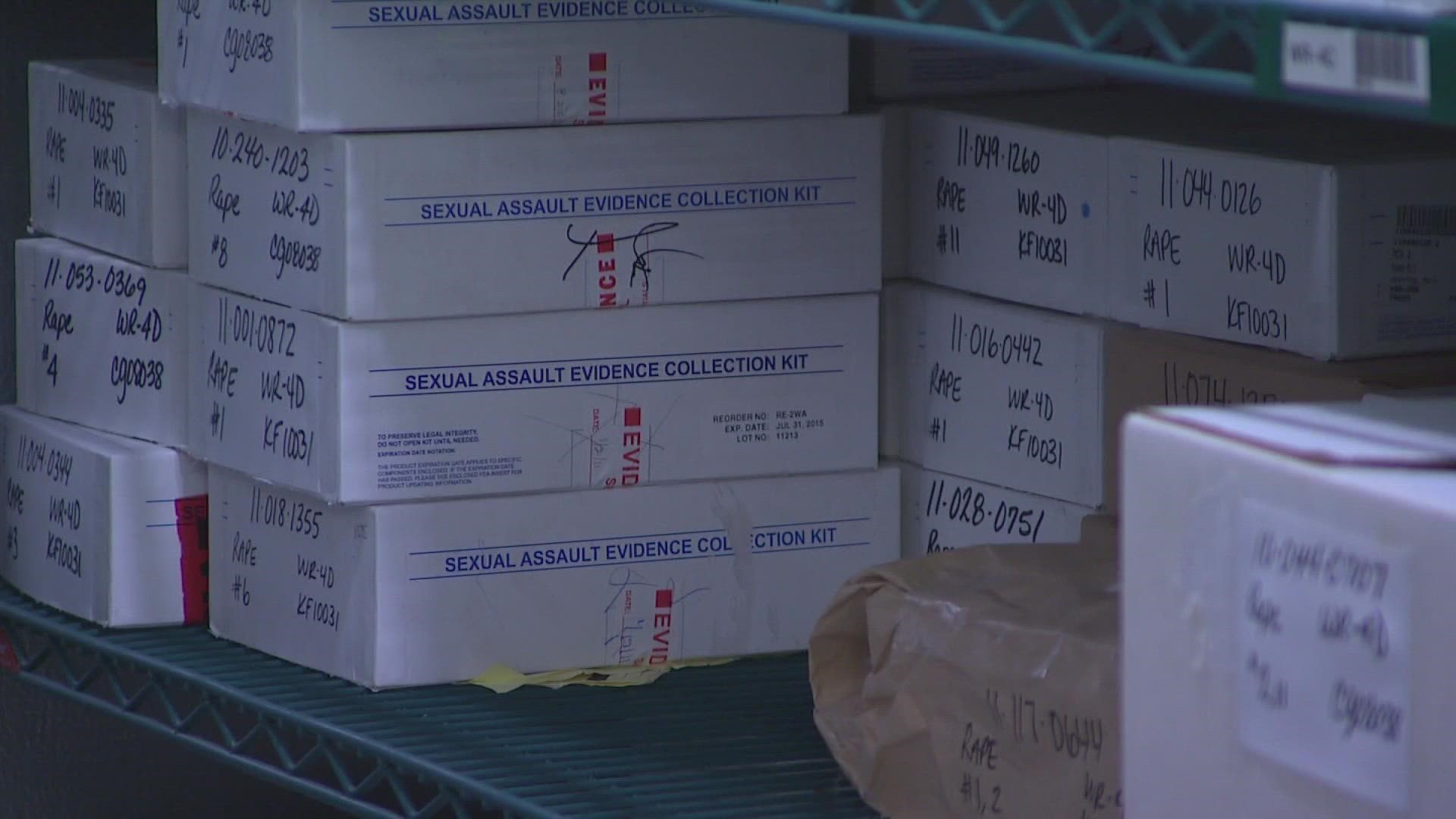OLYMPIA, Wash. — The Washington state auditor released a new report that showed progress is being made on the number of sexual assault kits sitting on shelves untested.
In 2018, there were more than 9,000 kits that had not been tested. One dating back to 1982, and now the number is cut in half.
Leah Griffin is a sexual assault survivor, and in 2014 she faced a broken system.
“A hospital that turned me away because they didn’t even provide sexual assault kits, police who refused to investigate, prosecutors who blamed and threatened me,” said Griffin.
She then fought to make a difference and with the help of lawmakers, got key pieces of legislation passed including a measure to eliminate the backlog and a tracking system.
“I was just a person who experienced trauma and I knew I had to do something and worked my butt off for the last eight years to make substantive change and I’m not unique. You can do it,” said Griffin.
In a new report, the Washington State Auditor's Office found progress has been made, but thousands of kits remain untested. The state is blaming the slow down on the pandemic.
In January, the state auditor found there were more than 6,000 kits left to be tested.
KING 5 checked with Washington State Patrol (WSP) and it said there are 4,543 new and old kits that are pending, with 60% of those historical kits which were collected before July 24, 2015.
“It’s wonderful to know that these people who went in and got the rape kit done that the evidence they collected from their bodies from that crimes scene that we're actually testing it,” said Griffin.
The auditor's report said WSP has taken the right steps. They are responsible for testing the kits and has 65 positions dedicated to that.
Since May of 2022, any new kit that comes in must be tested within 45 days. WSP said it received more than 500 kits from new cases and 99.4% of them were tested within 45 days, with testing completed on average within 25 days of receipt.
The forensic evidence is then put into a database.
“We're finding examples of serial predators that are out there over and over again that we wouldn't have caught without this process,” said Griffin.
Mary Ellen Stone, CEO of King County Sexual Assault Resource Center said it’s encouraging that progress is happening, but that it’s just the beginning for victims in a long process.
Stone is concerned about the backlog of cases being investigated by police and in the prosecutor’s office.
“When they make a report and nothing happens is like it's very easy to go with, why should I bother? Does anybody believe me? Was it my fault?” said Stone.
Stone pointed to nationwide data that shows out of 1,000 sexual assaults, 975 perpetrators walk free.
Stone said long delays are one of the barriers victims face when seeking accountability in the legal system.
“We have got to act with some sense of urgency here. We've got to make this a higher priority. We've got to be able to make some changes, if we want people who have been victimized by sexual assault to speak out,” said Stone.
The King County Prosecutor’s office said happened because of near shutdown during the pandemic and said it shares the same concern as KCSARC and would get cases through the court system faster if they could.
“We want victims to be heard, we want people who commit these terrible crimes to be held accountable. We need to be careful with these cases so they aren’t dismissed or overturned on appeal,” said Casey McNerthney with the King County Prosecutor’s Office.
McNerthney said in all the cases currently in backlog, charges have been filed.
As for the untested kits, WSP said it anticipates the majority of the historical cases pending will be tested by spring of 2023.

